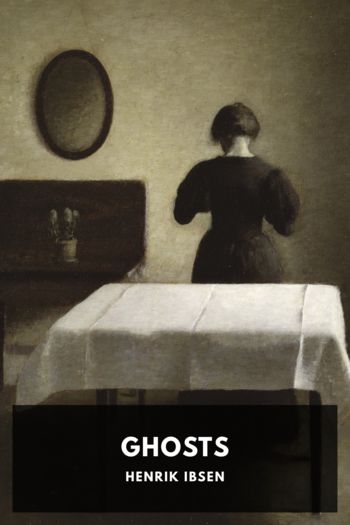Murderous by David Hickson (world of reading txt) 📗

- Author: David Hickson
Book online «Murderous by David Hickson (world of reading txt) 📗». Author David Hickson
“Why him?” I asked, helping myself to a little of the whisky. “Why that school friend?”
“There were whispers,” said Khanyi. “Stories that were dismissed by the big teams. We were trawling through the offcuts and this one popped up. It was only a rumour.”
“You know how I like the rumours,” said Fehrson. I did know. I’d been subjected to countless lectures on the subject of how the real security dangers were the ones disregarded because they were thought to be insignificant. They were Fehrson’s favourites.
“What kind of rumour?” I asked.
“Farmers stockpiling weapons,” said Khanyi. “Building their own army. Planning to find their own solutions to the land grabs. Start their own civil war and fight for their land. That kind of thing.”
“And someone took offence? Decided to end the war before it started? Is that why those thirty-three people died?”
“Perhaps,” said Fehrson, and he turned to look out at the white carpet of cloud. “Our working hypothesis is that one of the locals took exception to the military activities of members of that community and decided to put a stop to them.”
“By attacking the church? Why not attack them on their farms?”
“If the rumours about the number of weapons on those farms are true, they are too heavily guarded. The church would be a place where they are vulnerable, where they leave their weapons at the door. And the place they all come together. Saves driving around the countryside and taking them out one at a time.”
“Did Dirk’s friend confirm the rumours?”
“To some extent. The friend is setting up his own quasi-militant group and building a stash of weapons. Khanyi had better explain.”
“There is an organisation called the Suidlanders,” said Khanyi.
“South-landers,” interpreted Fehrson, stubbornly refusing to believe I could speak any Afrikaans. “Or people from the south, if you prefer. People of the south might be better: there is an implication of belonging to the land and vice versa.”
“They’re an official group,” said Khanyi. “Established under the Geneva Convention.”
“Lawfully constituted,” said Fehrson. Then he caught Khanyi’s look of irritation and silenced himself with some whisky.
“In other words, they are legitimate,” said Khanyi. “But they skirt the edge of the law. They are preparing for civil war and make no secret of it. There was an Afrikaans prophet who spoke of a civil war in South Africa, and they are preparing for it.”
Fehrson took advantage of a slight pause to elaborate. “Siener van Rensburg,” he said. “Siener for seer.”
“He foretold a civil war in South Africa,” Khanyi continued, “that would go beyond our borders and trigger the start of the Third World War.”
“I see,” I said. “Interesting stuff.”
“Interesting, but incendiary. The Suidlanders are using their interpretation of the old prophecies to fuel the flames of the fire they’re starting.”
“And Dirk’s friend is a member of the Suidlanders?”
“Dirk’s friend was inspired by the Suidlanders to form his own group. They seemed at first to be less of a threat. Dirk’s friend is a bit of a showman.”
“On the other hand, these smaller groups can be dangerous,” said Fehrson. “Underground, no lawful constitution or Geneva Convention.”
“Dirk was invited into his friend’s group. They call themselves the ‘White Africans’. Their intention is to pick up where the Suidlanders can go no further. Dirk was being welcomed into the fold. But then this happened.”
“You think someone in that little town got angry about the White Africans and did something about them?”
“Perhaps,” said Khanyi. “Except that none of the victims were members of the White Africans. As far as we can tell. At the moment, all that we have is a lot of questions, and very few answers.”
“But you do know that Dirk was there and the friend was not.”
“Neither the friend nor the friend’s father were in the church.”
“Was that unusual? Maybe they had nothing to confess to, so they gave it a skip.”
“That’s not why people go to church, Gabriel,” said Khanyi sternly. “The Dutch Reformed Church is about community and their relationship with God. These people are pillars of that community. They don’t miss the Sunday morning service without good reason.”
“So it was no coincidence they weren’t there?”
“We are not drawing conclusions,” said Fehrson. “Not yet. Let us just stick to the facts.”
“Which are that Dirk was in the early stages of befriending members of the Minhoop community,” said Khanyi. “People who are possibly forming their own private army. Yesterday many of that community were killed, including our Dirk. The people he was developing a relationship with were not present. Those are the facts.”
“None of which explains today’s charade. You’re surely not going to send me in to continue Dirk’s work? You must have twenty Afrikaners who would fit the part better than me.”
“You have an unconventional approach,” said Fehrson.
I didn’t draw attention to the irony of that comment. I didn’t need to because the silence in the cabin did it for me. ‘Unconventional’ might be Fehrson’s new euphemism, but we all knew that he had previously described my approach as ‘downright criminal’ and ‘brazenly outside the law’. He was fond of saying that he blamed my military experience, but regardless of where the blame lay, it was why he had decided that I would never work for the Department again.
Then it dawned on me.
“It’s blown up in your faces, hasn’t it?”
Khanyi looked to Fehrson for the answer to that.
“Not blown up. No, no. Not exactly.”
Which clearly meant that it had.
“What happened? Did Dirk get confused about which side he was on? Did he break down and confess all to his school buddy?”
“Dirk did nothing wrong,” said Khanyi. “There was a fight. A couple of weeks ago.”
“Youthful exuberance,” said Fehrson. “Nothing more.”
“Dirk was hospitalised. Questions were asked. We were suspended.”
“We?”
“The Department,” said Khanyi. “The Department is under investigation.”
“Mismanagement. Corruption. The full monty,” said Fehrson.
The two of them looked at me as if expecting some consolation, or perhaps a joining of hands and group silence in memory of the Department that





Comments (0)